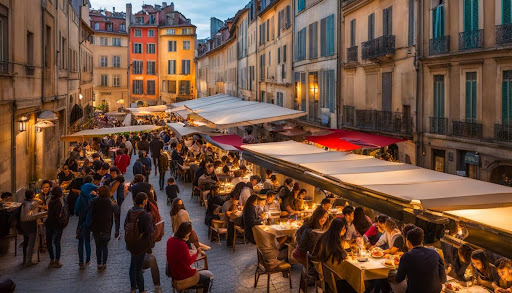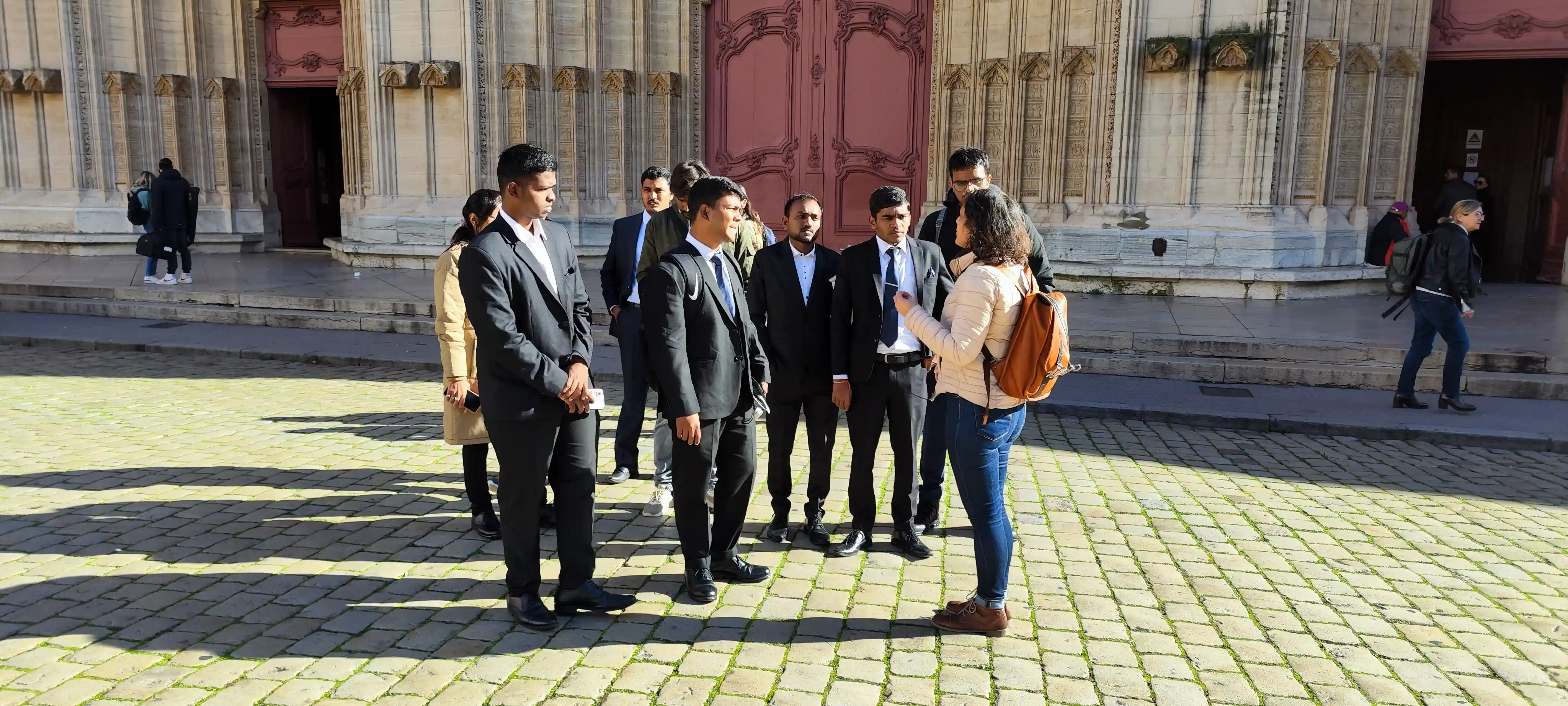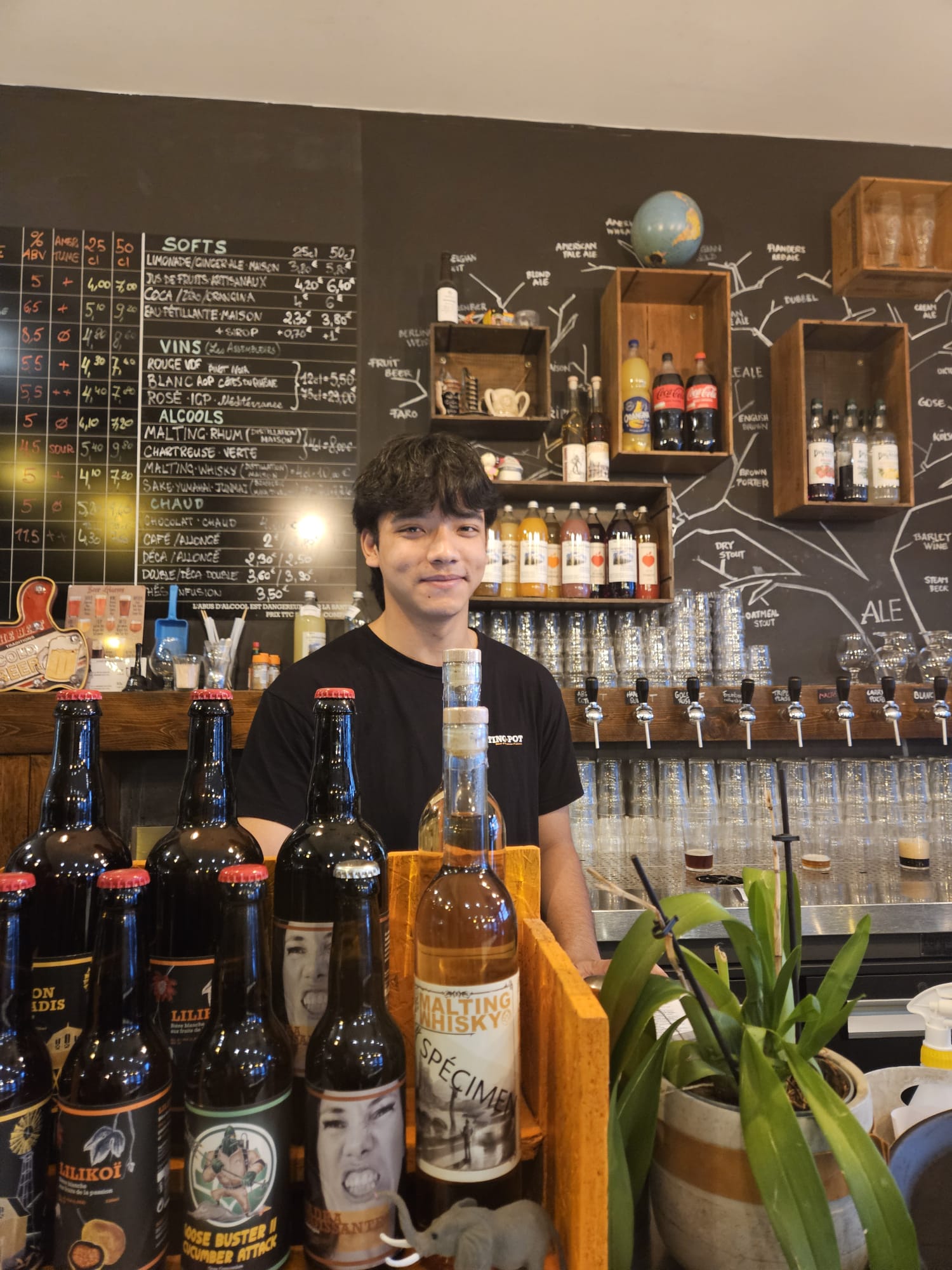Lyon’s emerging hospitality scene offers practical learning opportunities that complement MBA studies. The city’s growing range of hotels, restaurants, and event venues provides real-world environments where students can apply business theories directly.
This dynamic sector equips MBA students with hands-on experience in management, customer relations, and innovation, enhancing their career readiness. Networking with local hospitality leaders also opens doors to internships and job placements, making Lyon an ideal location for those pursuing a business education.
As the hospitality industry in Lyon continues to expand, it creates a rich landscape for students to explore diverse roles and challenges. This practical exposure supports the development of skills essential for leadership and strategic decision-making.
Overview of Lyon’s Hospitality Industry
Lyon’s hospitality industry is marked by steady growth, key international and local players, and evolving trends driven by technology and sustainability. The city combines a rich culinary tradition with modern tourism infrastructure, attracting both business and leisure travellers.
Recent Growth and Investment
Lyon has seen consistent investment in hotel development, with over 2,000 new rooms added between 2020 and 2024. Significant funding has also targeted conference centres and boutique hotels to meet rising demand from international business travellers.
The French government and local authorities support this growth through tax incentives and urban regeneration projects, especially near the Part-Dieu district. Hospitality investments have also focused on improving digital services and eco-friendly facilities to enhance guest experiences.
Key Players and Venues
Major hotel groups such as Accor, Marriott, and InterContinental operate flagship properties in Lyon. These include four and five-star hotels that cater to upscale clientele.
Local businesses like the Mama Shelter and the Original Michel Roland hotel offer unique, design-focused environments that appeal to younger professionals.
Important venues include the Centre de Congrès de Lyon and Eurexpo, significant for hosting international conferences and trade shows, driving business tourism.
Trends Shaping the Sector
Digital transformation has accelerated, with widespread adoption of contactless check-in, mobile room keys, and AI-powered guest services. This drives operational efficiency and enhances customer convenience.
Sustainability is gaining traction, with many new hotels aiming for certifications like HQE (High Environmental Quality) and integrating energy-efficient technologies.
There is also a rising focus on local gastronomy and cultural experiences within hospitality offerings, aligning with Lyon’s reputation as a culinary capital.
Career Opportunities for MBA Students
Internships and Graduate Programmes
Many hotels and restaurant chains in Lyon offer structured internships tailored for MBA students. These typically last 4 to 6 months and focus on operations management, marketing, and finance within hospitality settings.
Graduate programmes run by companies such as Accor and Groupe Flo provide rotational placements. These allow MBA graduates to gain experience across departments like sales, human resources, and revenue management.
These programmes often include mentorship and training modules designed to accelerate career progression. MBA students benefit from applying their business knowledge in real-world hospitality environments, enhancing their managerial competencies.
Entrepreneurial Pathways
Lyon’s growing hospitality market encourages innovation and start-up ventures in food services, luxury accommodations, and event management. MBA students with entrepreneurial interests can tap into local incubators, such as the Lyon French Tech network, to launch new concepts.
Access to funding and business support services in Lyon supports scalable hospitality start-ups. MBA expertise in finance and strategy is vital for crafting viable business plans and attracting investors.
This environment allows students to experiment with customer experience innovations, digital marketing strategies, and sustainable hospitality models to meet evolving consumer demands.
Recruitment by Leading Hospitality Brands
Leading international and French hospitality brands maintain offices and properties in Lyon, offering numerous recruitment opportunities for MBA graduates. Employers like Hyatt, Marriott, and Châteauform’ seek candidates with strong leadership and analytical skills.
Roles often recruited for include business development managers, financial analysts, and operations directors. These positions require expertise in both hospitality and broader business management disciplines.
Recruitment cycles usually coincide with university schedules, with many firms attending career fairs and hosting interviews on campus. MBA students benefit from direct access to hiring managers and industry insiders.
Also Read : Internship Opportunities at Aura International
Networking and Professional Development
Lyon’s hospitality sector offers numerous pathways for MBA students to expand their professional network and gain practical insights. Engagements range from attending prominent local events to forming strategic partnerships with businesses in the city. Mentorship opportunities connect students with experienced professionals and successful alumni.
Industry Events and Conferences
Lyon hosts several hospitality-focused events, including trade shows, seminars, and workshops that attract industry leaders. MBA students benefit from direct access to these gatherings, often available through university partnerships or local business networks.
These events allow students to learn about current trends such as sustainable tourism and digital innovation in hospitality. Networking sessions are particularly valuable, facilitating face-to-face interactions with managers, entrepreneurs, and consultants.
Students frequently secure internships or project collaborations by attending these conferences. Additionally, workshops on leadership and marketing strategies are tailored to the hospitality context, sharpening MBA-relevant skills.
Collaborations with Local Businesses
Many Lyon-based hotels, restaurants, and event companies actively engage with MBA programmes. They offer case studies, live projects, and part-time roles specifically designed to develop industry-specific competencies.
This collaboration benefits both parties: businesses gain fresh perspectives, while students apply classroom knowledge to practical challenges. Examples include guest service optimisation and supply chain management projects.
Collaborative setups often extend to internships with firms like luxury hotel chains and boutique dining venues. These placements provide firsthand experience and build connections crucial for job placement post-graduation.
Mentorship and Alumni Engagement
Lyon’s universities facilitate mentorship programmes linking MBA students with seasoned professionals in hospitality. Mentors guide career development, offer advice on industry entry, and open doors to exclusive opportunities.
Alumni networks in the city also play a pivotal role by organising meet-ups and speaking engagements. These events allow current students to tap into the real-world experience of graduates who have succeeded within the local sector.
Such interactions often include shadowing opportunities and insider tips on navigating Lyon’s job market. The ongoing relationship between students and alumni enriches both professional and personal growth.
Experiential Learning in Hospitality
Lyon’s hospitality education offers hands-on experiences that build practical skills. Students engage directly with industry challenges through projects, immersive stays, and detailed case analyses.
Practical Projects and Consultancy
MBA students work on real hospitality projects, often collaborating with local hotels and restaurants. These projects involve market research, service innovation, and operational improvements.
Consultancy roles allow students to apply theory to practice, tackling specific issues like customer experience or cost management. This exposure helps them develop problem-solving skills tailored to the hospitality sector.
The outcomes often influence business strategies, giving students a sense of tangible impact while honing their analytical and communication skills.
Immersion Programmes
Immersion programmes in Lyon place students inside hospitality settings for extended periods. They get firsthand experience managing guest services and observing daily operations.
These programmes frequently partner with luxury hotels and event organisers, providing insight into high-end hospitality standards. Students also learn cultural nuances relevant to international guests.
Such immersive experiences deepen understanding of industry dynamics and prepare students for leadership roles within diverse hospitality environments.
Access to Real-World Case Studies
Lyon’s MBA courses include analysis of detailed hospitality case studies from local and international businesses. Cases focus on operational challenges, marketing strategies, and financial performance.
Students examine successes and failures, gaining knowledge of best practices and common pitfalls. These studies are updated regularly to reflect current market trends.
Access to this rich case study material sharpens critical thinking and equips students to make informed decisions in complex business contexts.
Innovation and Technology in Lyon’s Hospitality Scene
Lyon’s hospitality sector integrates cutting-edge technology with sustainable methods and a vibrant start-up culture. This combination enhances operational efficiency, reduces environmental impact, and fosters new business models that reshape the industry.
Adoption of Digital Solutions
Digital transformation is a core feature in Lyon’s hospitality businesses. Hotels and restaurants use artificial intelligence for personalised customer experiences and streamlined services. For instance, some venues employ AI-driven chatbots to handle reservations and guest queries, improving responsiveness.
Mobile apps are popular for contactless check-ins, room controls, and ordering services. Data analytics play a crucial role in understanding customer preferences and optimising inventory. These technologies equip MBA students with practical exposure to digital tools that are immediately relevant in global hospitality management.
Sustainable Practices
Lyon’s sector increasingly incorporates eco-friendly technologies to reduce waste and energy consumption. Many establishments use IoT sensors for better resource management, such as automated lighting and climate control systems. This reduces operational costs and carbon emissions.
Water-saving fixtures and waste recycling programmes are standard in newer developments. Sustainability training is often part of managerial roles, preparing MBA students to balance profitability with environmental responsibility. This focus aligns with global trends demanding greener hospitality operations.
Start-up Ecosystem Impact
Lyon’s start-up scene fuels innovation in hospitality, providing fresh solutions for common industry challenges. Start-ups offer platforms for booking unique accommodation, smart kitchen equipment, or sustainability tracking tools. These ventures often collaborate with hospitality firms to pilot new technologies.
Incubators and accelerators in Lyon support entrepreneurs, attracting MBA students interested in innovation and business development. Exposure to these start-ups equips students with entrepreneurial skills and insight into emerging market trends.
Cultural and Lifestyle Benefits for Students
Lyon offers a rich blend of cultural experiences and everyday conveniences that enhance student life. The city’s hospitality sector provides practical support alongside unique lifestyle opportunities.
Exposure to International Gastronomy
Lyon is widely known as France’s culinary capital, famed for its traditional bouchons and innovative dining. MBA students can explore diverse international cuisines in numerous restaurants, reflecting Lyon’s position as a global food hub.
Access to such variety helps students understand global culinary trends and hospitality practices. Many eateries source local, seasonal produce, highlighting sustainable gastronomy. This exposure benefits students interested in food service, tourism, and hospitality management.
Social Integration and Local Experiences
The hospitality scene encourages social interaction through events, festivals, and community initiatives. Students often join local wine tastings, cooking workshops, and food markets, which foster connections with residents and other internationals.
These experiences deepen cultural understanding and provide informal networking opportunities. Being part of local traditions enriches students’ personal growth and broader cultural competence.
Student-Friendly Hospitality Services
Lyon’s hospitality sector is tailored to student budgets and schedules. Many cafés, bars, and hotels offer student discounts and flexible hours suitable for academic commitments.
Accommodation options such as student residences and hostels often collaborate with hospitality businesses to provide internships and job opportunities. This integration makes it easier for students to balance work, study, and social life efficiently.
Long-Term Career Advantages
Lyon’s hospitality sector equips MBA students with skills and connections that provide lasting benefits. These include a stronger job market position, international opportunities, and pathways to senior management roles.
Enhanced Employability
MBA students engaging with Lyon’s hospitality environment gain practical experience in a fast-growing market. This hands-on exposure is prized by employers who value candidates familiar with operational challenges and customer-oriented strategies.
Knowledge of hospitality-specific financial management, marketing, and service excellence increases graduates’ appeal. Many local companies actively seek MBA candidates because they bring both academic theory and real-world insights.
Soft skills like communication, problem-solving, and cultural awareness also rise. These abilities enhance adaptability and are transferable across industries, broadening employability beyond hospitality alone.
Global Mobility Through Hospitality Networks
Lyon’s hospitality scene connects MBA students to an expansive global network. Leading hotel chains, event organisers, and food service groups have regional hubs here, fostering international contacts.
These networks enable graduates to pursue roles across Europe and beyond, supporting career moves to major cities with hospitality clusters like London, Paris, or Dubai. Alumni platforms and professional associations in Lyon also provide ongoing networking opportunities.
Access to global industry events and internships available through local institutions further promote international exposure. This global mobility is crucial for long-term career growth in multinational hospitality firms.
Opportunities for Leadership Roles
Experience gained in Lyon’s emerging hospitality sector often fast-tracks MBA graduates into leadership positions. The region’s businesses value the strategic thinking and analytical skills developed during MBA programmes.
Many companies encourage MBA holders to lead projects on innovation, customer experience, and operational efficiency. This responsibility enhances managerial competence early in their careers.
Furthermore, Lyon’s hospitality firms face growth challenges that require agile leadership. MBA graduates equipped with both sector knowledge and business acumen are well-positioned to take on senior roles in this dynamic environment.




